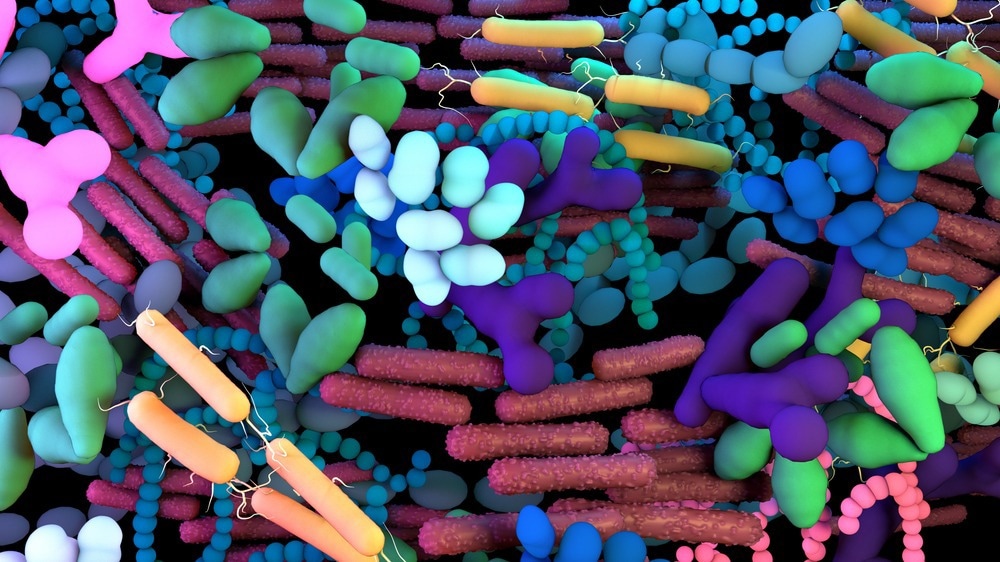Rutgers researchers examined the impact of COVID-19 on patients’ microbiomes, the group of microbes that live in and on the human body. They discovered that an acute infection can upset the normal balance of good and bad microbes in the gut, especially when combined with antibiotic therapy.

Image Credit: Design_Cells/Shutterstock.com
The research could result in the creation of probiotic supplements to correct any gut imbalances in future patients, according to the researchers.
Researchers at Robert Wood Johnson University Hospital in New Brunswick described the initial findings of an ongoing study examining the microbiomes of patients and volunteers in the scientific journal Molecular Biomedicine.
Since many COVID-19 patients reported experiencing gastrointestinal problems both during the acute stages of their illness and while recovering, the study, which started in May 2020 during the early stages of the pandemic, was created to focus on the microbiome.
We wanted to gain a deeper understanding by looking at specimens that would give us an indication about the state of the gut microbiome in people. What we found was that, while there were differences between people who had COVID-19 and those who were not ill, the biggest difference from others was seen in those who had been administered antibiotics.”
Martin Blaser, Study Lead Author and Henry Rutgers Chair of the Human Microbiome and Director, Center for Advanced Biotechnology and Medicine, Rutgers University
According to Blaser, who is also a professor of medicine, pathology, and laboratory medicine at Rutgers Robert Wood Johnson Medical School, it was common practice to treat COVID-19 patients with a round of antibiotics early in the pandemic, before the introduction of vaccines and other antiviral treatments, in an effort to combat potential secondary infections.
According to Blaser, humans harbor substantial and varied populations of microbes. The colon has the highest concentration of these microorganisms, but they also reside in the gastrointestinal tract, on the skin, and in other organs.
The microbiome interacts with metabolism, the immune system, and the central nervous system to influence human health, as researchers like Blaser have demonstrated over the past few decades.
The microbiome serves a variety of purposes.
Blaser added, “One is to protect the human body against invading pathogens, whether they are bacteria or viruses or fungi. That goes deep into evolution, maybe a billion years of evolution.”
Dysbiosis, a condition where the ratio of healthy to harmful microbes in a person’s microbiome is off, is a common cause of health problems.
The researchers examined the populations of microorganisms in stool samples collected from 60 individuals to study microbiomes. 20 COVID-19 patients, 20 donors in good health, and 20 participants who had recovered from COVID-19 made up the study group.
Comparing the microbiomes of infected patients with the healthy and recovered patients, they discovered significant variations in the populations of 55 different bacterial species.
To determine the long-term impact of COVID-19 on specific microbiomes, Rutgers researchers intend to keep testing and monitoring the microbiomes of study participants.
“Further investigation of patients will enhance understanding of the role of the gut microbiome in COVID-19 disease progression and recovery. These findings may help identify microbial targets and probiotic supplements for improving COVID-19 treatment, Blaser added.